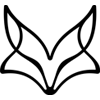How it all began...
When Wildling founders Anna and Ran returned to Germany from Israel with their three children, they were faced with the question of what would happen career-wise. The Wildling idea hadn't yet been born, and so they looked for jobs. In the Oberberg region, with three small children, that was a huge challenge. Any job would require accepting inflexible working times and a long commute. Back then Anna was already asking herself whether paid work really always has to be done at fixed times and locations, or whether it might be possible to think of work in such a way that the what and the how are at the forefront, rather than the when and the where.
Fortunately, the idea of founding Wildling then came up.
It quickly became clear that Anna and Ran wouldn't be able to - and wouldn’t want to - handle this huge project alone. So the job-seekers became employers and continued thinking:
How do we actually want to work? How should our collaboration work? And what do we see as the fundamental values on which our work is based?

Ran, Sascha and Anna
New Work Inspiration
The "New Work” wheel wasn't invented by Wildling. Anna and Ran found quite a lot to draw inspiration from: Patagonia founder Yvon Chouinard, for example, who summarises the company values in a book with the title “Let My People Go Surfing”. He recognised that employees are most motivated when you leave them the freedom to work when it fits best into their daily routine. And if the perfect wave comes, well then they go surfing.
As a business consultant, Frederic Laloux, author of “Reinventing Organizations”, has supported many managers who were dissatisfied with the status quo. He says that a “classic” company functions at best like a machine, and is also treated that way. Broken parts are to be repaired, and if something is getting stuck it’s given a bit of oil to make the machine work again. New work companies, on the other hand, see themselves not as a machine, but as a living organism in which everything is intertwined and grows together.
And last but not least the Corporate Rebels with their newsletter, which presents pioneer companies or discusses interesting studies on the topic of new working models.
But with all inspiration the key is to take up existing ideas, fill them with life and adjust them to your own values and people. Here are a few examples to explain why we at Wildling do more new work than old work, and what that means in detail:

From a small Start Up to a New Work Company
Started with a crowdfunding campaign, which Anna and Ran set up with the help of a few freelancers, Wildling is now a company with over 80 wild brains, of whom a large number work part time (also in strategic areas). Many are mothers with small children: At Wildling we currently have 83 employees, of whom 18 are men and 65 women, working a total of 2415 hours per week. Thirteen women and twelve men work full time (not including Anna and Ran). The other Wildlings have various part-time working models, from a few hours a week to nearly full time.
The nightmare of the grey men (as in the German children’s book, Momo), who believe that with mothers working from home total chaos would break out and the work wouldn't get done, is far from a reality at Wildling.
Freedom, Independence and Flexibility -> Remote Work
Pursuing an idea because you are completely behind it; being able to adjust the how and the where to fit your own requirements - for Anna and Ran that was a formative experience. Anna:
“There are few things in life that are as important to me as my freedom. Being allowed to act autonomously, and in terms of content to focus on the topics that interest me - I see that as an enormous privilege.
That feeling of freedom, as well as the possibility to get involved in areas where you yourself can contribute most, is something that's gone into Wildling's DNA and something I’d like to see as a given for all colleagues.”
Thanks to digital tools, which have been part of collaboration at Wildling from the beginning, we can plan and design working steps, develop ideas, and agree all necessary processes with each other. We use asana for project management; the Slack chatroom is our “office” or the coffee corner for quick decisions and feedback, and we hold our telephone conferences using GoogleMeet. In order to cater to both owls and larks, it is not necessary - apart from joint meetings - to confine work to the 9-to-5 framework.
"I can work when my three kids are at nursery and school, or in the evenings while they're off on wild adventures in dreamland.
That means we can spend the afternoons together as a family and I can still work for Wildling Shoes." (Tina)
Wildlings work all over Germany, some even temporarily or permanently further afield. Those who need quiet for concentrated work can work from home. Those who prefer the occasional chat with others or even benefit from a bit of distraction can meet with others for co-working or work in a café.
In times of digitalisation, whether all employees are in the same place at the same time or not has less bearing on results. It’s much more important that they work towards common goals with enthusiasm, knowledge and a wealth of ideas.
That's why Wildling Shoes doesn't have a headquarters in the classic sense. There are some posts in the warehouse in Engelskirchen, and an additional building in the Bergisch region that’s currently being converted to hold the regular all-hands meetings where all Wildings come together every six weeks. Here, as well as looking at important work-related projects, we can also focus on the social side of things in order to get to know each other better and add a personal element to communication which is usually digital.
Self-Determination and Working on Goals and Visions
Have you seen the picture with a goldfish, a monkey, a bird and an elephant standing in front of a tree? An examiner says: “To make sure the task is fair, it’s the same for everyone: Please climb the tree!” Who'd be the winner here?
Eighty people in one company, that’s eighty people with very different knowledge, abilities and ideas. A fish can swim well, a monkey’s good at climbing, and when it comes to flying you can't beat a bird - but if they were to try and imitate each other's talents they’d be hopelessly lost.
That each person can and should develop their strengths in the team is a basic premise and desirable for all sides: for the individual working with enjoyment on something they can do well, and for Wildling, because joy and unfettered creativity lead to the best results.
So that everyone knows and internalises the WHY of Wildling Shoes, the values and visions weren’t laid down in secret by Anna and Ran, but discussed in joint meetings. Each new pack member encounters them during the training phase, and together they are regularly implemented as concrete goals in the individual work areas.
With the “Objectives by Key Results” method, which we use once a quarter to define our plans and objectives, we make our way of working transparent for the whole team. Objectives are not laid down by management. Instead, the individual teams specify what they can and want to achieve in the time, and how they plan to work on and implement the objectives. Not only are the objectives transparent, but it also becomes clear which resources are required. In regular meetings and feedback sessions we all make sure that everyone's up to date.
What is this New Work good for?
If the relevant statistics are to be believed, many employees are frustrated with their job or have already inwardly resigned. I think we can say with confidence that at Wildling everyone’s fully motivated, also on the inside. That doesn’t mean that everything always goes smoothly, but everyone knows where we stand and where we're headed as Wildling Shoes, and can contribute where possible, within the desired framework.
Family-friendliness is part of Wildling’s DNA, which is reflected in the high proportion of mothers and fathers working in both part-time and full-time positions. Our flexible way of working makes it possible to be there for the smallest pack members and still contribute to the family income.
"You can schedule doctor’s appointments during the day, you can get official business done during office hours. You can also be there to join in with Christmas or Easter activities at school. You can be with friends and family who are further away and work from there. And that's exactly what counts: quality of life." (Indra)
"People who get to know us are often surprised that we both work nearly full time, and then too often you’ll see the judgement that the children must be suffering because of it, are being shoved into full-time care and that it must be well-nigh impossible to have any hobbies. I admit it: If I didn't work for Wildling, 35 hours would certainly be somewhat more of a Utopia." (Katharina)
Qualifications gained before parental leave don’t get lost just because you can’t always be glued to your desk from 9 to 5.
But Wildlings without children, too, have the possibility to fit work and hobbies, voluntary work or community involvement into 24 hours.

Our early risers don't have to wait for the office to open, and the night owls can return to their desks and focus in peace once the busy-ness of the day has subsided.
Of course we, as a young company, also benefit in many ways from working this way: We can hire Germany-wide, or even internationally, and don't have to rely on convincing the best talent to move to the Bergisch region (however beautiful it might be!).
And we can't agree with the doubts about part-time work, because if someone’s perfect for a Wildling position, then a few hours working towards our company’s success are better than none at all, which would be the alternative.
Packing freedom into a pair of shoes - and into every workspace. That’s a task that has us running and working wildly every day.
That was a quick glimpse into our way of working. In the future we want to look more closely at individual aspects - what are you most interested in?
Run Wild! Anna, Ran & Team Wildling



